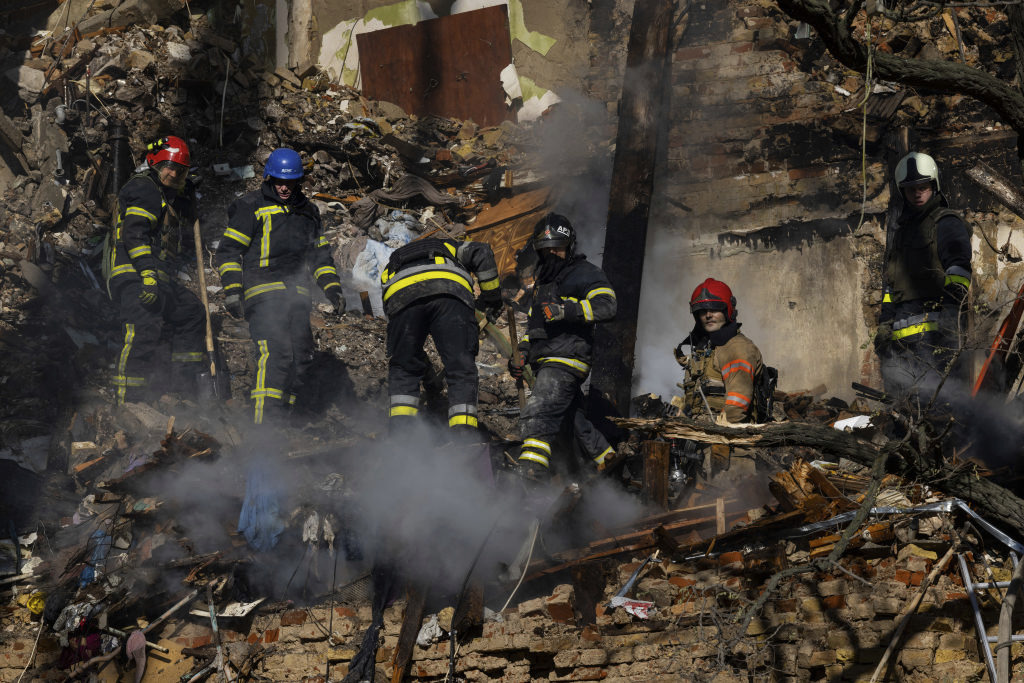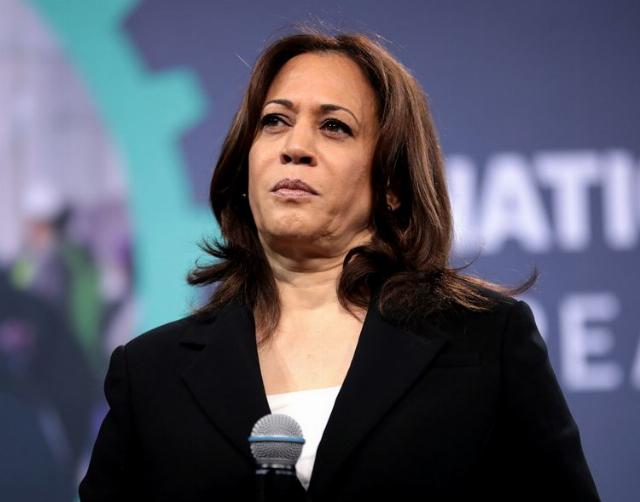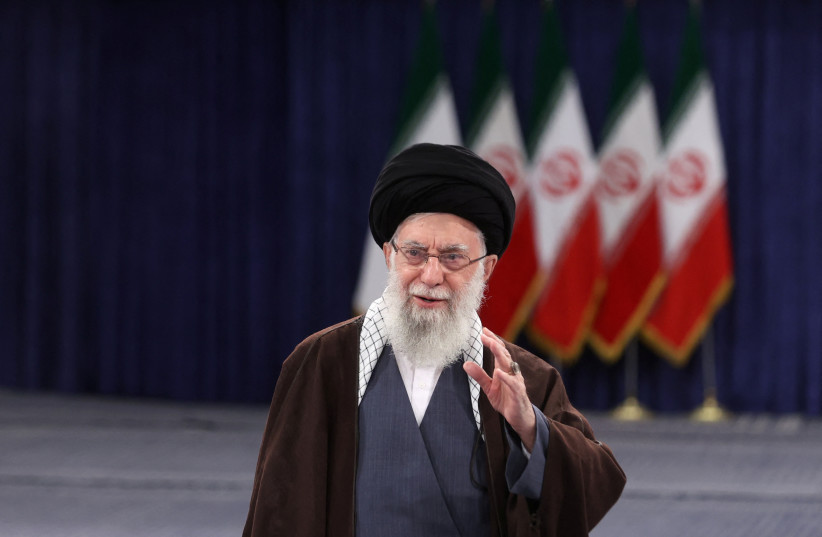by Yuval Barnea, Corrine Baum
The attack occurred in three major waves, with the second and third waves targeting Iranian drone and missile production sites, hitting over 20 targets.
 |
Israel confirmed it had struck numerous military sites during its retaliatory strikes on Iran on Saturday in an operation later named "Days of Repentance."
The attack was declared over by 5:45 a.m., just as the sun began rising over Tehran, according to public broadcaster KAN11.
The attack occurred in three major waves, US and Israeli officials said. The second and third waves targeted Iranian drone and missile production sites, hitting over 20 targets, according to Axios and the New York Times.
Iran told AFP that it had not received any reports of injuries from the strikes.
The IDF later announced early Saturday morning that it had completed its reactive operation against Iran.
The IDF said that the strikes were conducted in response to the continuous attacks on the State of Israel and its citizens.
The IDF confirmed the operation was over and that all mission goals had been achieved, with all planes returning safely home.
The IAF struck missile manufacturing sites that produced the missiles Iran fired at Israel over the last year.
Simultaneously, the IDF struck surface-to-air missile arrays intended to restrict Israel's aerial freedom of operation in Iran.
"The State of Israel reserves the right to defend its citizens if the Iranian regime continues attacks against the State of Israel and its civilians," the IDF said.
Defense Minister Yoav Gallant was directing the attacks from a secure complex in IDF headquarters in Tel Aviv, according to Israeli media.
"The IDF is currently attacking precise targets in Iran," IDF Spokesperson Daniel Hagari said in a statement. "This is in response to persisting attacks by the Iranian regime on the State of Israel.
A second wave of airstrikes was reported following blasts heard in Shiraz later on early Saturday morning.


"The IDF is completely prepared in
attack and in defense. We are following the developments from Iran and
its proxies in the region."
In response to months of continuous attacks from the regime in Iran against the State of Israel—right now the Israel Defense Forces is conducting precise strikes on military targets in Iran.
— Israel Defense Forces (@IDF) October 25, 2024
The regime in Iran and its proxies in the region have been relentlessly attacking… pic.twitter.com/OcHUy7nQvN
No change in Home Front Command orders was announced. Israel's Security Cabinet also convened in order to approve the strikes.
Over 100 planes were involved in the 2000 k.m. attack, including the cutting-edge F-35, according to Walla.
The United States was notified by Israel ahead of its strikes on targets in Iran but was not involved in the operation, a US official told Reuters.
“We understand that Israel is conducting targeted strikes against military targets in Iran as an exercise of self-defense and in response to Iran’s ballistic missile attack against Israel on October 1," said Sean Savett, White House National Security Council spokesperson, in a statement. "We would refer you to the Israeli government for more information on their operation."
Sites in Iran
Israel reportedly attacked the location of the headquarters of the Islamic Revolutionary Guards Corps in Iran.
“We’re targeting things that might have threatened us in the past or could do in the future,” NBC News quoted an Israeli official saying. The official further stated that Israel is not striking Iranian nuclear facilities or oil fields and is focusing on military targets.
There were reports of widespread internet outages across Iran as the attacks continued.
Several of the strikes in Tehran targeted military bases across southern and southwestern Tehran, according to Iranian media.
A video obtained by @IranIntl_En shows an explosion near the grave of Rouhollah Khomeini, the founder of the Islamic Republic, in Kahrizak, south of Tehran. pic.twitter.com/MHimo2XD2Z
— Iran International English (@IranIntl_En) October 26, 2024
Karaj, one of the cities where explosions were heard, contains one of Iran's nuclear power plants.
The Tasnim news agency said that "nothing has been reported about hearing the sound of rockets or airplanes in the sky of Tehran so far."
Iranian officials and media have been denying that Israeli airstrikes took place, saying explosions were a result of Iranian air defense; an Israeli official strenuously denied this to Ynet, saying, "This is a lie. Total failure - zero interceptions."
Loud sirens were heard in Sadeghiyeh (Aryashahr) neighborhood in western Tehran as Israel started its airstrikes, a video obtained by @IranIntl_En shows. pic.twitter.com/vpagCU5l5Y
— Iran International English (@IranIntl_En) October 26, 2024
Reports of explosions at the Imam Khomeini International Airport in the Iranian capital were also received. However, Iranian officials denied anything was wrong.
Parallel operations
The IDF began an artillery attack on the Al-Bureij refugee camp in the Gaza Strip as part of the broader series of strikes across the region, including both aerial and ground attacks on terrorist strongholds, according to Israeli media.
Israel also attacked targets in Syria, with the Syrian military confirming that the IDF had struck sites across central and southern Syria.
Explosions were also reported in Iraq as part of the series of responses to Iran and its proxy groups throughout the region.
There were no planes flying over Syria or northern Iraq during the time of the suspected attack. Iran closed its airspace following the attack, according to Maariv.
On Friday, a fire was reported at an Iranian Defense Ministry site in Tehran, although the Tehran Fire Department denied any connection.
This is a developing story.
Yuval Barnea, Corrine Baum
Source: https://www.jpost.com/breaking-news/article-826117








